|
|
 FRANÇAIS FRANÇAIS |
 |
|
|

|
 |
|

Bios
|
|
| |

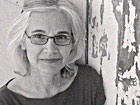
|

Sylvie Van Brabant
Originally from Alberta, director producer Sylvie Van Brabant
completed her studies in psychology. Approached by the National
Film Board, who saw her potential as a young director, she made
her directorial debut with an ethnographic film on French culture
in Alberta. She moved to Quebec and quickly became a very committed
producer/director. In 1981 she released Depuis que le monde
est monde, an in depth study of birthing practices in Quebec.
The social impact of this film, a definite factor in the establishment
of midwives and birthing rooms in Quebec, proved to Sylvie that
her work could effect real changes.
In 1984 Sylvie founded her own company Les Productions du Rapide-Blanc
with partners director/D.O.P. Serge Giguère and television
writer Francine Tougas. What followed was a steady stream of
award-winning films that defined Rapide-Blanc’s style of
very cinematic Point of View documentaries. Their films, deeply
rooted in Quebec culture and society, break boundaries and several
become classics in a genre for which Quebec has made a name
for itself – cinéma vérité. In the
1990’s, Sylvie started to work in English and directed
for the CBC The Last Trip (1995) bringing viewers into
the heart of a teenage suicide pact. She produced for TV Ontario,
Judy Jackson’s Baby Business (1995), an investigative
documentary on international adoption that won several prizes
in the U.S.
Several documentaries from Rapide-Blanc have become strong educational
tools touring schools and institutions. Her award-winning feature The Kids Next Door (Seul dans mon putain d’univers, 1997) a poignant
exposé of the social conditions that are often the roots
of youth violence and drug addiction. Eve Lamont’s Squat! (2002) which won both Best direction for a feature documentary
As president of Les Productions du Rapide-Blanc for the past
22 years, Sylvie remains committed to the production of high
quality documentaries that serve society on many levels.
 |
| |
|
|
|
| |


 |

Serge Giguère
Serge Giguère’s films are
a unique blend of cinema vérité and surrealism.
He chooses to film non-conformist, often larger-than-life
characters who illustrate a unique aspect of their milieu.
His films tell the story of the Quebec he grew up in and its
subsequent evolution—a historical backdrop that adds
subtle depth to his method of seeking out and depicting his
protagonists’ aspirations as humorous dream-like sequences.
Giguère’s eclectic style has earned him many awards
along with a place in the hearts of his audience.
Giguère’s cinema has universal appeal. For his
compatriots, his stories are their stories: those of working
class people who survive thanks to their stubbornness and
singularity.
His use of archival footage and his close collaboration with
editor Louise Dugal gives his films the kind of finesse that
can only be achieved through endless hours of painstaking
work.
In many ways, Giguère is like his characters: driven,
uncompromising and atypical.
In King of Drums (Le roi du drum) and Oscar
Thiffault, his subjects’ worlds—both are legendary
artists—inhabit his images, which lends their lives a
social perspective. In 9 St-Augustin and Le reel
du mégaphone (The Megaphone Reel) Giguère
takes a more political stance; but his irony and relentless
curiosity are equally present, captured by his distinctive
Giguère began his career as an assistant cameraman
with influential filmmakers Perreault, Groulx, Lamothe and
Gosselin before founding Les films d’aventures sociales
du Québec in 1975 with Robert Tremblay and seeking
out his own style. In the early 1980s, he co-directed two
films, Depuis que le monde est monde and Le doux
partage, with then-wife Sylvia Van Brabant. Together,
Giguère and Van Brabant founded Les Productions du
Rapide-Blanc so that they could make films their way.
For the past 20 years, Giguère has offered us his uncompromising
vision in stories that stay with you long after the lights
come on.

|
| |
|
|
|
| |

 |

Nicole Hubert
Nicole Hubert is a socially committed producer who, through her work over the past 25 years, has enabled documentary filmmakers to put their ideas on screen. She began producing feminist documentaries with Montreal’s Groupe Intervention Vidéo (GIV) and, in 1990, joined Studio D, the women’s studio of the National Film Board of Canada’s English Program. Enthusiastically embracing the studio’s mandate to give women from different walks of life and all regions of Canada an opportunity to express themselves through film, she produced ten multiple-award-winning documentaries, among them After the Montreal Massacre (1990), Toward Intimacy (1992) and Long Time Comin’ (1993).
In 1998, Hubert joined Les Productions du Rapide-Blanc, where she has overseen development and production of documentaries by Sylvie Van Brabant, Eve Lamont, Serge Giguère, Claude-André
Nadon and Michel Gauthier. Award-winning films such as Arjuna, Méchante job, An Everest from Within (Un Everest de l'intérieur), Rivières
d’argent, Sur les traces de Riel, Squat! have helped shape public awareness of crucial social issues. Driven by Dreams (À force de rêves) is a feature-length look at the lives of elderly people who are passionate about their hobbies—an ode to growing old, shot in a matter-of-fact style that captures the richness of ordinary life. In 2001-02, Rivières d’argent helped fuel public debate over the privatization of electric power production in Quebec. The documentary was widely seen and was useful to citizens’ groups opposed to such projects. Squat! (2002), an inside look at the first political squat in Quebec history, received the Best Direction Award—Feature as well as the Humanitarian Award at Toronto’s Hot Docs.
Hubert currently has several documentaries in production or development, including two by Serge Giguère: Le mystère MacPherson and Louis-Edmond Hamelin: le père du concept de la nordicité. Ève Lamont’s last film (L'Imposture) is in keeping with the vision espoused by Nicole Hubert and Les Productions du Rapide-Blanc: to create documentaries that stimulate thought and debate and offer a different take on crucial current social issues.
 |
| |
|
|
|
| |

 |

Francine Tougas
After graduating from the Conservatoire D’Art Dramatique de Montréal in 1973, Francine Tougas was a stage and television actress for ten years, before starting to write and give solo performances across Québec. She eventually turned to developing concepts and writing scripts for television, working on youth series (Bibi et Geneviève), soaps (À Plein Temps, Fred-Dy) and social issue dramas (Les Enfants Mal-Aimés, Les Enfants de la Rue, l’Emprise). She has also written several children’s books and in 2004, published the critically acclaimed novel Les mardis de Béatrice. She also sits on the editorial committee of the magazine Québec Oiseaux.
In addition to her work as a writer, Francine Tougas is very interested in documentary. She scripted a film on the Cirque du Soleil’s 10 years of existence, and has been associated with les Productions du Rapide-Blanc for 18 years. In her capacity as the company vice-président, she has acted as script consultant on numerous projects includingRivières
d’argent by Michel Gauthier, Seeds of Hope (L'ïle aux fleurs),
by Katerine Giguère and Driven by Dreams (À force de rêves), the latest film by Serge Giguère and Nicolas Boisclair and Alexis de Gheldere's Chercher le courant for which she also worked as executive producer. Two years ago, she launched her directorial debut with Survivors (Survivre), a documentary about the affects on the survivors of a terrible bus accident.

|
| |
|
|
|
| |

|

Nathalie Perreault
Distribution Agent
Fifteen years involvment as an editor, coordinator and manager in the visual arts and publishing fields has allowed me to develop wide-ranging experience in organising, funding and promoting major events and international networking activities, as well as supporting emerging, innovative and socially comitted ideas and art forms.
Documentary comes a logical extension to that. At Rapide-Blanc since end of 2008, I have coordinated alternative distribution for the award-winning documentaries Earth Keepers and Chercher le Courant.

|
| |
|
|
|
| |

 |

Katerine Giguère
Katerine Giguère has worked in the film industry for more than fifteen years. She began her career as an assistant camerawoman on feature-length dramatic films then went on to become a partner in the documentary production company, Rapide-Blanc where she produced, directed and shot her first documentary Seeds of Hope (L'ïle aux fleurs).
For a number of years Katerine has concentrated on cinematography, collaborating with several noted directors including: Karina Goma, Francine Pelletier, Anaïs Barbeau-Lavalette, Hugo Latulippe, Bernar Hébert and Sylvie Van Brabant. Yet she has never ceased directing or producing and is currently preparing a short documentary, “Le Monde d’Adrien” which follows the evolution of a young boy from the ages of 6 to 12.
Attracted by photography and dramatic films as much as documentary, it is unlikely Katerine will ever exhaust the world the images that inspire her.

|
| |
|
|
|
| |

 |

Eve Lamont
For over 20 years, Eve Lamont has distinguished herself as a documentary filmmaker through her denunciation of oppression and the aberrations of the patriarchal capitalist system. Her films propose social and environmental alternatives, while giving a voice to people whose lives and rights have been marginalised.
By following the daily realities of such remarkable yet unsung individuals, she provides them with a podium, using the techniques of direct cinema. Her films are valuable tools for reflection and debate.
Two of her highly acclaimed works areThe Fight for True Farming (Pas de pays sans paysans, 2005), about the alternatives to industrialised agriculture, and Squat! (2002), which follows the occupation of a building by a group of squatters in Montreal. Squat! won the award for Best Director in the feature documentary category and the Humanitarian Award at the 2003 Toronto Hot Docs festival. In her most recent documentary, L’imposture, Ève Lamont turns her camera on the struggle of women who are attempting to leave prostitution. She has been working on this project since 2006.
 |
| |
|
|
|
| |

 |

Denis McCready
Denis McCready has compounded nearly 10 years experience in documentary films on projects ranging from science, war, humanitarian aid, music, dance and visual arts. He was line producer on Naica : Secrets of the Crystal Cave for National Geographic and the series Mars Rising for Discovery Canada.
Denis has also worked as a photo reporter Boznia-Herzegovnia and Nagorno-Karabagh with Medecins sans Frontières and CARE. He won second prize at the Concours littéraire de Radio-Canada with his travel story : Return from Sarajevo.
For Rapide Blanc, he was line producer on Earth Keepers before he produced Wendy Champagne's first feature BAS! Beyond the Red Light in 2009, and Nicolas Boisclair and Alexis de Gheldere's Chercher le courant which won Canal D's Audience Award in addition to a Special Mention by EcoCamera's jury at Rencontres internationales du documentaire de Montréal 2010. He is currently producing En pleine face – La naissance du punk montréalais, a feature documentary by Érik Cimon for Périphéria Productions.

|
| |
|
|
|
| |


|

Wendy Champagne
As a freelance journalist and writer Wendy has made her home in 9 different countries in the last 17 years, a gypsy life that has brought her inside the lives of so many wonderful people and in contact with extraordinary stories from across the planet. In particular it is the stories of women and children, accounts of injustice, triumph and wisdom that have become the passion and the focus of much of Wendy’s research and writing.
In 2005, while in Nepal researching a magazine feature on international adoption, Wendy visited a home for formerly trafficked girls and met Geeta who became the subject at the heart of her first feature documentary BAS! Beyond the Red Light released in 2010.
Collaboration is the greatest joy of filmmaking for Wendy, who will continue to make films that cross genres and attempt to break down barriers between ideas, beliefs and each other.

|
| |
|
|
|
| |

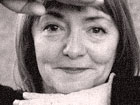
|

Violette Daneau
“Atmosphere, atmosphere…”, if she isn’t talking about the atmosphere of a space, Violette has it on her mind. The ambience, colors, and the textures of the image have always lived in her. For her, décor says a lot about the universe of an individual. It brings it to life, all the while accentuating the mystery of their environment. It also gives narratives an electric shock.
Throughout her 25 years as an artistic director, Violette has had the opportunity to create ambient spaces for big names including, André Mélançon (Québec), Marta Mészaros (Hungary) and Robert Altman (USA). Not to mention the hundreds of television ads she has put her mark on. Now, her passion for dark and light has pushed her to invest her time in writing and producing a documentary, Les équilibristes, an intimate voyage of humans facing the end of their lives.

|
| |
|
|
|
| |

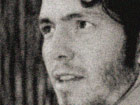 |

Nicolas Boisclair
Environmental activist, Nicolas Boisclair is also passionate about wilderness expeditions. Whether it is touring Central America on bike, canoeing on the Rupert river, mountain climbing in the Andes, alpine skiing in the Groulx mountains or hitch hiking to the Yukon, he is always excited to have the chance to share his experiences with those individuals who would be a bit uncomfortable in these situations. We call him the expedition chief because he brings us beyond, in total security, where we would never go. Very energy cautious, at the same time organized and technical, he is a gold mine of information on energy because he can uproot severe regulations implemented by energy companies by asking good questions.

|
| |
|
|
|
| |

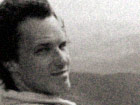 |

Alexis de Gheldere
Journalist, producer and jack-of-all-trades, Alexis de Gheldere is passionate about open spaces and meetings. After years of traveling to numerous countries and writing travel guides for Editions Ulysse, he headed to West Africa where he traveled for seven months in 2002-2003. While there he produced six half-hour documentaries for RDI. Afterwards, he worked with a team of producers and professors on a series of programs targeted to youth on the street (Télé Sans Frontières) and Native Americans (Wapikoni Mobile) designed to teach them about the production of short documentaries. He continues to work in Journalism (Voir, Géo Plein Air, Québec Magazine, Ulysse) while participating in film projects and television series, most often at the four corners of Quebec or abroad.

|
| |
|
|
|
| |

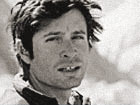 |

Claude-André Nadon
Well-known mountain climber and award winning filmmaker Claude-André
Nadon has scaled the Cho Oyu, in Tibet, the sixth highest
peak on the globe at 8201 meters, and Mount Everest to within
600 meters of its summit. In 2001, his ascension of the Cerro
Torre in Patagonia won him the Prix Yves-Laforest 2002 awarded
by the Quebec Mountain & Climbing Federation.
The fast pace and intensity of his first film, co-directed
with Sylvie Van Brabant, An Everest from Within (Un Everest de l'intérieur) earned it the coveted Grand Prix du Festival d’Autrans
of the Festival international du film d’Autrans : Montagne
& Aventure 2002 and the Galaxi Award 2002 from the Canadian
cable association of television as well as a nomination at
His most recent film, K2 Ascending Journal (K2 Journal vertical), invites
us to experience the world of K2, the greatest challenge in
As well as directing films Claude-André spent six years
in the cinema industry as a machinist, cameraman and editor.
In 2004, he started working for the United-Nations. His first
mission, participating in the organization of the presidential
elections in Afghanistan and then ensuring snow removal throughout
the country. He then went on to Pakistan following the earthquake
as Remote Recon and Response Specialist. As a youth he had
worked in numerous development projects in Haiti, Peru, Ecuador
and Russia. He has therefore come back to his first passion,
humanitarian work..

|
| |
|
|
|
| |

 |

Fernand Bélanger
Fernand Bélanger is a director whose unique, stimulating
and revolutionary voice is reflected not only in the themes
he treats but also in his creative approach to filmmaking.
His historical, political and cultural concerns colour his
vision of the world. Nonchalant, imaginative, poetical and
militant, his work promotes the aspirations of the Quebecois
people in their struggle to remain afloat in the wake of the
American cultural and economic tidal wave. His films claim
the right for each and every citizen of the planet to exist
in freedom.
Throughout a rich career spanning nearly 40 years, Fernand
Bélanger has directed numerous feature-length fiction
and documentary films. Works such as Ty-peuple, De
la Tourbe et du restant, L’émotion dissonante,
Passiflora and The French Spirit (Le Trésor archange) tell of
his love for sensitive souls striving to assert themselves,
for those down-to-earth folk struggling to survive, for the
Quebecois language, for a nation in the process of self-definition,
and his pressing need to create without limitations. This
talented director, editor and scriptwriter is perceived by

|
| |
|
|
|
| |

 |

Michel Gauthier
In 1999, Michel Gauthier undertook a crusade to convince the
government to abandon new projects for private production
of hydro-electricity on Quebec rivers. Enlisting the support
of citizens groups and committed artists, the director shot
the film Rivières d’argent in order to increase
awareness, in the regions and in large cities, of the social,
economic and environmental impacts of building private hydro-electrical
dams.
As a film photographer with twenty years of experience, Michel
was already familiar with the power of film and the media
in their capacity to reach a wide audience and to increase
public awareness on specific issues. So it was a natural decision
for him to make a point-of-view documentary reflecting his
vision, and that of others, on this important environmental
cause. In collaboration with colleagues, Michel created the
coalition Adoptez une rivière (Adopt a river)
and, eventually, the River Foundation, through which
he pursues his tireless work to save Quebec’s rivers.
With several victories to his credit, the struggle is nevertheless
far from over.

|
| |
|
|
|
|













